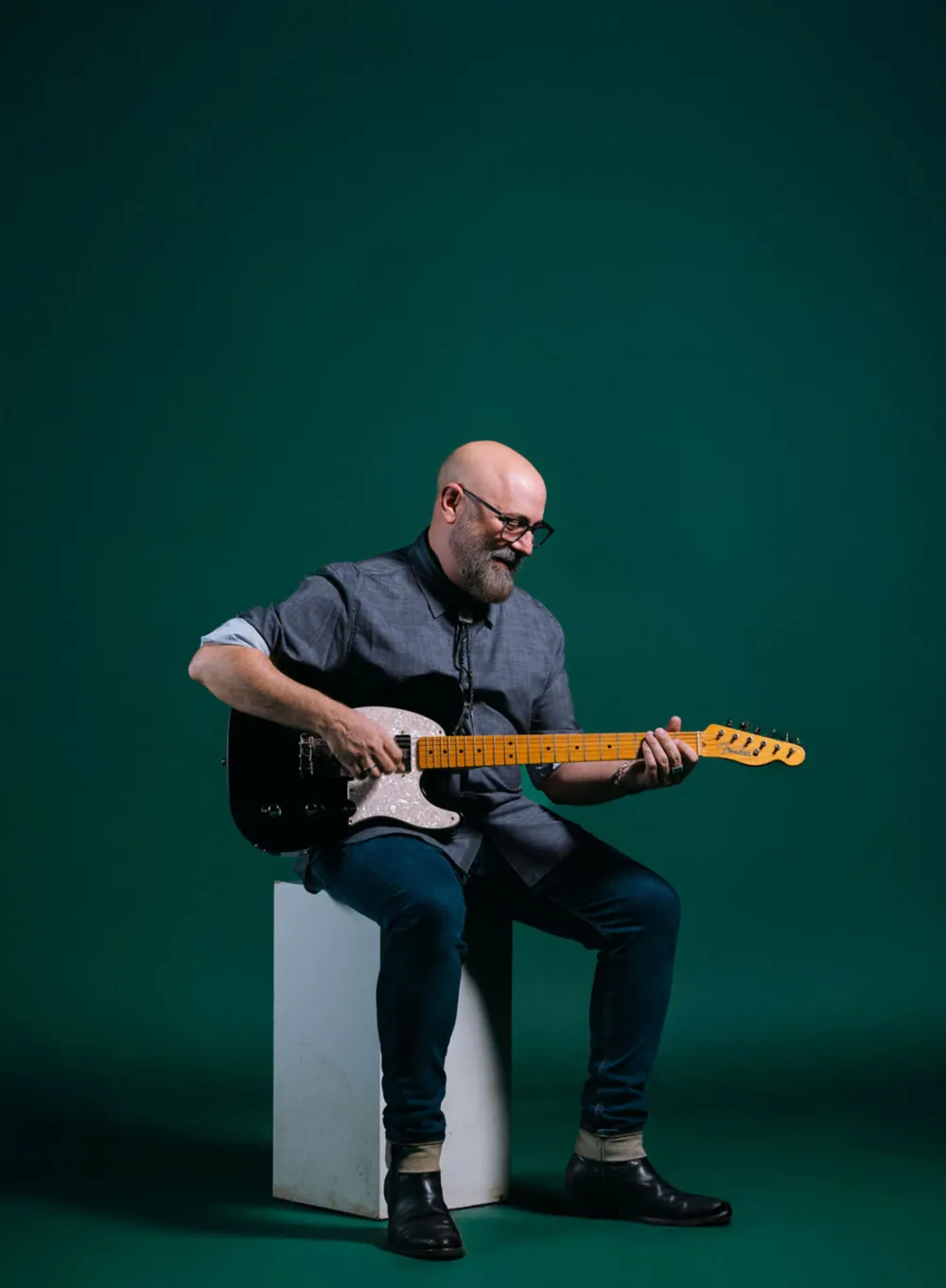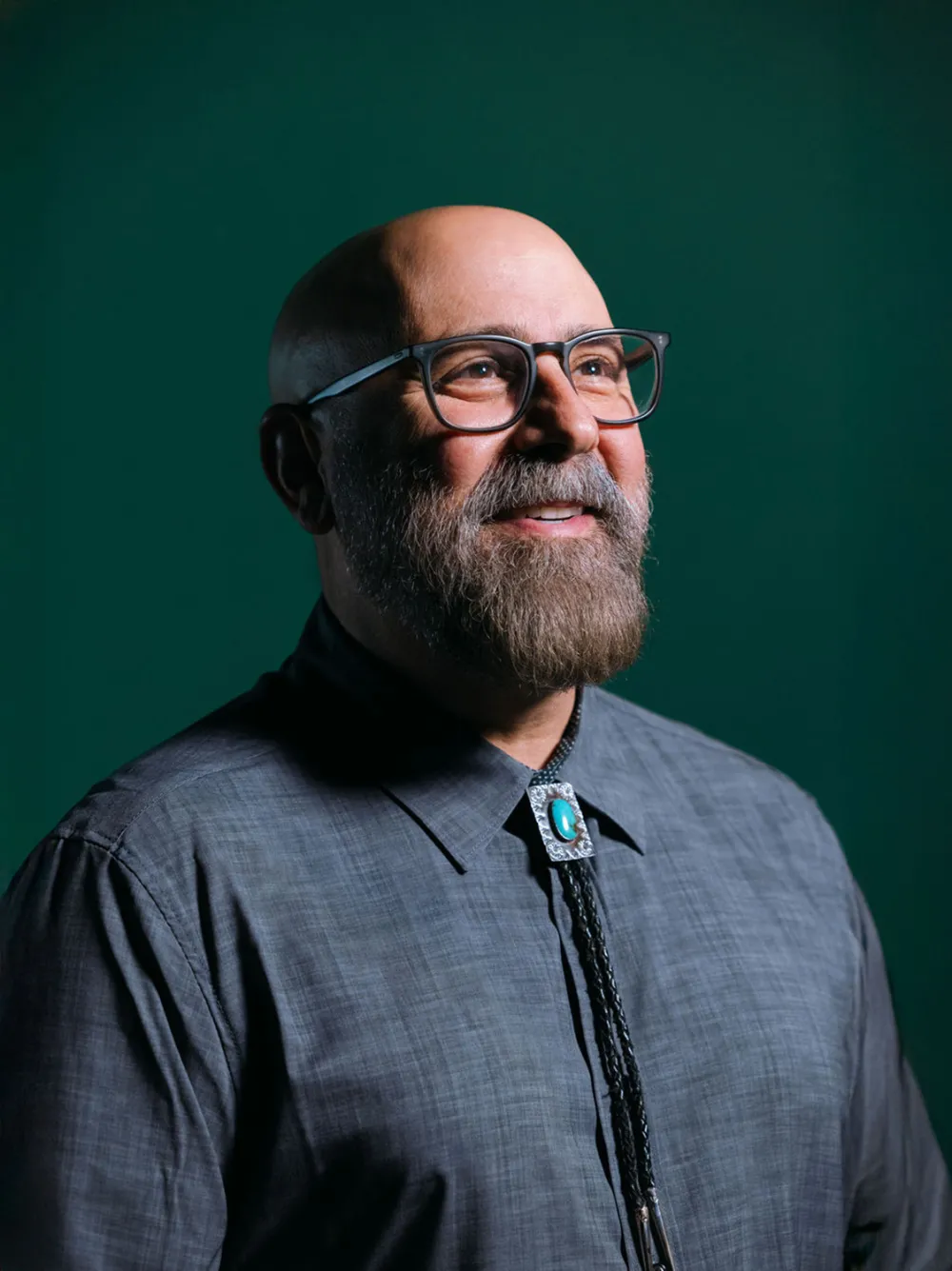Staff Creatives: Andy Stoltz

Creativity runs high among College of Fine Arts staff members, both in their day jobs in the college supporting our research and educational mission and in their personal lives. The college has an unusually high number of practicing artists, musicians and performers — many of them alumni — on our teams.
Andy Stoltz is the recording services manager in the Butler School of Music.
How many years have you worked in the College of Fine Arts?
I just completed my eighth academic year.
Describe your creative practice.
It can vary according to the project. For my music/sound and video work, I am always “working” either by mentally refining ideas and concepts or by compiling actual data in the form of words, images, videos, audio samples and musical ideas. I usually spend an enormous amount of time thinking and planning before I actively start working on something. Once I have made a connection that I believe in conceptually, it’s just a process of compiling the relevant data into a workable form and then removing the superfluous. For my improvisational work, it’s simply a matter of “doing it.” This is particularly relevant regarding my collaborative projects where there is a central idea or underlying aesthetic that guides the targeted outcome. Songwriting is some sort of combination of all of these methods. Refining larger, more complex emotions and ideas into smaller, cleaner phrases that fit into song structures is deeply challenging and rewarding.
How did you get started in your creative practice?
I started taking guitar lessons at 9 years old, learned the discipline, commitment and sense of accomplishment of daily engagement and just never stopped. My process has, of course, changed and developed over many years as I have taken on new levels of work, but I have continued pursuing the refinement of the creative process ever since. The goal is always to become more efficient.
What does a typical day look like when you’re balancing both your work and creative passions?
I usually do something creative before I go to work — play an instrument, edit/mix audio, edit photos or videos. Even if it’s just for a short amount of time. I think protecting some of myself in that way — before my day gets overrun with administrative, managerial and technical considerations — is crucial to keeping pace with my creative ambitions. I also try to end every day with something creative or expressive. Whether that be composing, songwriting, practicing or photo editing, some days, this is very challenging, so even if it’s only a humble gesture, I try to maintain this ritual.

Any advice for students as they think about their professional pathways?
Never stop learning. Always try to develop and enhance your skill set even if it seems outside your area of expertise. Feeling like a beginner can be exciting! This will open up new pathways for creative work while also keeping you engaged with new ideas and trends. The creative arts have been merging for decades, and more is required of artists than ever before to carve out a niche. Be bold. It’s better to come up short while trying something new than to come up short by doing nothing at all.
How do you define success as an artist? How has that definition evolved over time?
As someone who makes much of my living through the university structure, I think it’s important for me to acknowledge that I am very fortunate to be able to balance artistic ambitions and financial requirements in a meaningful way. These are perpetual challenges for artists and the compromises we make often feel like sacrifices. When I was much younger, I defined artistic success only in conventional measurable ways: competition, compensation, peer acceptance, awards, etc. Having experienced the highs and lows that come with a longer career, I now define success in these two ways: Do I still enjoy the process? Am I making work that I personally like? As long as the answer to both is “yes,” I will continue making my work, and I will consider it a success. It can be very easy to become discouraged when the world around you doesn’t seem to value what you do. That value needs to come from doing the work itself.

